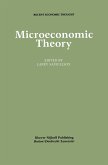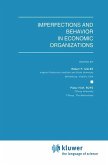In this volume are papers written by students and co-authors of Stanley Reiter. The collection reflects to some extent the range of his interests and intellectual curiosity. He has published papers in statistics, manage ment science, international trade, and welfare economics. He co-authored early papers in economic history and is reported to be largely responsible for giving the field its name of Cliometrics. He helped initiate, nurture and establish the area of economics now known as mechanism design which studies information decentralization, incentives, computational complexity and the dynamics of decentralized interactions. The quality, craft, depth, and innovative nature of his work has always been at an exceptionally high level. Stan has had a strong and important direct effect on many students at Purdue University and Northwestern University. He created and taught a course which all of his students have both dreaded and respected. Using the Socratic method in remarkably effective ways to teach theory skills, he has guided, prodded, and encouraged us to levels we did not think we were capable of. Some of his students are represented in this volume. But even those whose careers took directions other than mathematical economics still consider that training to be an important component of their success. Stan's students include department chairmen, business executives, Deans, a Secretary of the Air Force, and a College President. His guidance has been necessary and fundamental to whatever successes we have had.
Bitte wählen Sie Ihr Anliegen aus.
Rechnungen
Retourenschein anfordern
Bestellstatus
Storno








